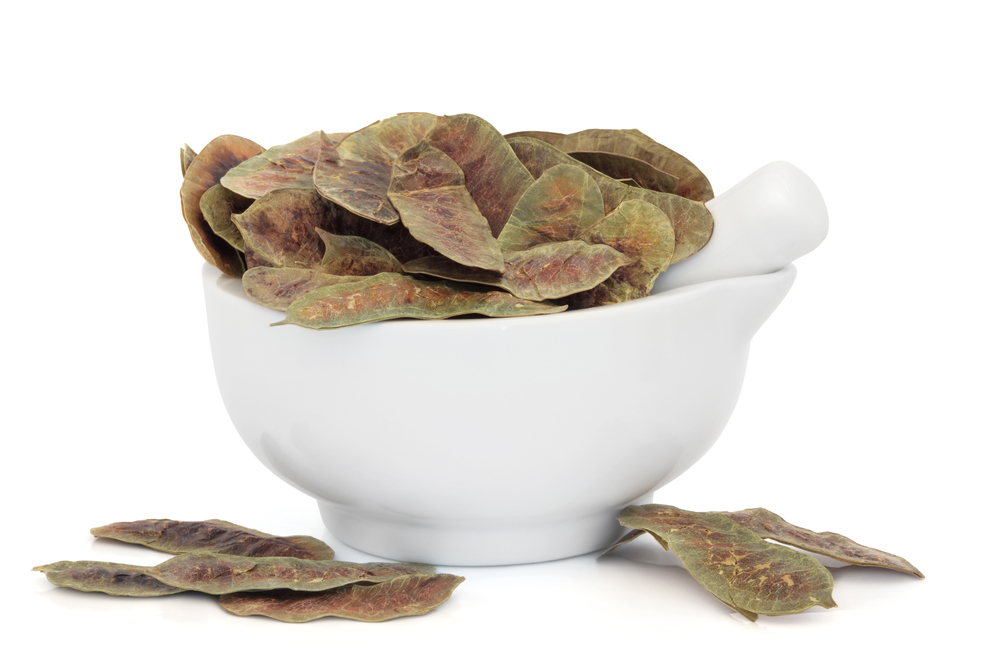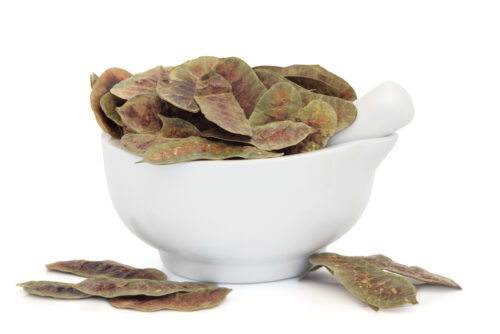Are Herbal Laxatives Dangerous? What Everyone with Constipation Needs to Know


We are a constipated nation. If you’ve ever struggled with constipation, like me, you know how painful it can be. And with 15-20% (or over 42 million people) in the United States struggling with it I know I’m not alone.
So, what should constipated people do? If you head to the local drugstore, it’s likely you’ll end up buying a product that contains an herbal laxative.
But have you ever paused to wonder: are these things dangerous?
As someone who used to be constipated I wondered the same thing. And so I decided to dive into the research to see what I could find out about herbal laxatives.
And as always, the story is more complex and contextual than anyone, including myself, would like it to be.
Let’s first be clear: constipation is a serious issue and if you’re not regularly eliminating the waste of your body you’ll start recirculating it. And you’re raising your risk of serious medical issues such as hemorrhoids, toxic megacolon and possibly colon cancer.
What’s important is to begin a short-term intervention to start pooping again, but the question is… where do you start?
What are Constipated People Doing?
In 2004, 5.3 million prescriptions were written for medications to relieve constipation and untold numbers decided to self-medicate with over-the-counter laxatives. And i don’t blame them, it’s much less embarrassing to try to take care of this personal problem yourself.
Unfortunately, it’s a 600 Million dollar a year market. Companies know this too and through widespread marketing campaigns herbal laxatives have become a very common remedy.
But, there are also other remedies like enemas, non-stimulatory vitamin laxatives and foods that can be eaten to help with constipation.
Unfortunately, many people are marketed into buying herbal laxatives because of the terms “herbal” and “natural.” This belief makes them safer or better for dealing with constipation than other ideas.
Sadly, this isn’t the case.
The Truth About Herbal Laxatives
Herbal laxative use is prevalent. It’s widespread use has caught the eye of the research communities over the last few decades and is becoming a hot research topic. Although the literature hasn’t cemented any truths (yet), the safety of herbal laxative use is up for debate.
Several studies have looked into links between herbal laxatives and colon cancer and the jury is still out. Some studies are even finding that certain compounds in herbal laxatives have genotoxic effects (meaning they damage DNA code).
But on the other side researchers are saying the effects are minor and/or cannot be considered a cause of herbal laxative use. But before we dive deeper into the studies let’s talk about what herbal laxatives are.
What are in herbal laxatives?
If you go to the store and pick up a product that uses an herbal laxative it will likely contain one or many of the following compounds:
- Aloe
- Cascara
- Frangula
- Rheum
- Senna
All of these are herbal stimulant laxatives. And are found in teas, pills and liquids.
How Do Herbal Laxatives Work?
These herbs contain compounds called anthranoids. There are several types of anthranoids and each herbal laxative has a different type or combination of them. Anthranoids act on the colon as stimulant laxatives by inducing intestinal peristalsis.
Though it isn’t precisely known, it is believed that colonic gut flora aids in metabolizing compounds into usable form. These active compounds then stimulate peristalsis, interact with nerve fibers in the colon, and disrupt electrolyte levels, which affects water reabsorption in the colon.
Stimulant laxatives can physically irritate the colon causing contractions that can sometimes be very painful. This increases the rate at which food passes through your colon and can affect nutrient and water reabsorption.
But this is also how they get the poop out.
Are Herbal Laxatives Dangerous?
Look, there’s no doubt that constipation should be relieved and that going on a regular basis is better than not going. But in the case of herbal laxatives the research is still ongoing and there are some real concerns for you to be aware of.
There are four ways that herbal laxatives can be dangerous…
- Melanosis coli and possible increased cancer risk
- Electrolyte imbalance
- Physical dependence
- Physiological dependence
Let’s dive deeper into each of these areas so you’ll fully understand the risks of these products. Starting with the scariest: cancer risk.
Herbal Laxatives = Melanosis Coli = Cancer?!?
Certain studies suggest anthranoids have carcinogenic and mutagenic effects. Scientists have seen that these compounds cause melanosis coli – which really just means the cells in your colon turn a dark color. This is a potentially big deal because it’s been thought that melanosis coli is a precursor to troubles like colon cancer.
No, at least not right now. Earlier claims of melanosis coli-cancer connection are being refuted. Some studies are now reporting that there’s actually no significant risk from herbal laxative use in regards to cancer, even going so far as to say that the coloring of colon cells from anthranoid use is not related to colon cancer.
However, anthranoids have been shown to induce apoptosis in high dosages. Apoptosis is when a cell explodes itself (a.k.a. cell kamikaze). How can something that is killing cells in your colon be ok?
Apoptosis is a natural mechanism the body has for protection. If a cell is damaged, and it recognizes this, it has the ability to commit suicide for the betterment of the group. But inducing apoptosis through herbal laxative use is cause for concern as that study shows senna usage resulted in altered colonic crypt lengths.
But at this point, it’s very much back and forth. The reality is this whole area of research is new and still developing. And cancer is a complex disease. Drawing the conclusion that herbal laxatives cause cancer is irresponsible and not possible at this point.
But it is concerning enough to me that I’m not willing to risk it.
You’re Not Just Losing Poop in That Toilet
If you have used herbal laxatives, I’m guessing you have experienced their ability to “clean you out.” Well, it turns out that it’s not just waste that you are dumping into the toilet.
When you have these kind of stimulated bowel movements you also lose sodium, potassium, and a bunch of water. In other words, you lose a bunch of electrolytes into the toilet as well. It has been reported that individuals who overuse herbal laxatives like cascara display hypokalemia (a severe depletion of potassium), dehydration, and acidification of their system.
Consumption of certain herbal laxatives while taking other drugs can increase the risk of hypokalemia – a double whammy. Chronic overuse of laxatives can also cause raised levels of aldosterone, impaired kidney function, muscle weakness, thirst, and edema.
And in rare cases herbal laxatives have been linked to bloody diarrhea, vomiting and even death.
All laxatives that cause a good clean out will affect electrolyte levels. I couldn’t find any comparison studies of laxatives. However, the studies above focus specifically on herbal laxatives, which is worth noting.
You Can Become Physically Dependent Upon Herbal Laxatives
Physically, you can become dependent on laxatives for bowel movements, especially if used chronically. If you want to see a severe case, check out Dr. Oz’s episode on laxative abuse. The irritation caused by herbal laxatives can create a lazy GI tract and actually destroy parts of your colon. In some cases, mucosal lining was altered to the point where the natural folds that make up the inside of the intestine turned smooth.
Basically, the colon can lose its shape, form, and elasticity. This can make it really hard to stop taking laxatives once you’ve started. Your colon actually doesn’t function the way it is supposed to when chronically using herbal laxatives.
This is a serious issue for those who want to stop using them at some point and fix the root issue of their constipation. The process of trying to retrain and repair the colon takes time and can be embarrassing and painful, which may cause many to just start back on the laxatives.
Getting Addicted to Stimulated Bowel Movements
While physical changes in the colon sounds scary, I think an underrated source of concern is the physiological dependence. When I was constipated, and it got bad enough, it was the only thing I could think about; I wanted to poop and I wanted to go now.
And when I would figure out routines, or test different aids for pooping, if it worked I was instantly hooked. I’d try the same thing day after day because it always felt so much better to poop than not to.
But in the long-run this sets up a very serious problem of addiction to routines and pills.
Our brains have an amazing ability to create new habits through what’s called neuroplasticity. In simple terms, neurons that fire together wire together and those connections become deeper over time…
Which in this context means that if you take herbal laxatives over and over, to get rid of pain and poop, your brain begins to wire together that you need those laxatives to go. And then, over time, it’s easy to start believing it’s the only thing that will make you have a bowel movement.
Now, it’s true this habit pattern can also form in relation to coffee or exercising (both of which are ways people try to stimulate bowel movements). So, this is not just an issue with herbal laxatives, but combined with the other three risk factors I think they’re an even worse choice for those who are constipated.
What are Safer Alternatives For Constipation?
In my opinion, there are many other safer ways, as well as more natural, to relieve constipation. Not to mention they aren’t being studied as possibly promoting cancer.
That being said, don’t forget that constipation is solvable, that constipation is a symptom of a bigger issue, and it’s a communication from your body that something is wrong.
If you want to actually get rid of constipation, once and for all, then I want you to check out our 2.5-hour Constipation Event.
We covered the best short-term and long-term strategies for improving constipation and, if done correctly, strategies that won’t create the problems we talked about today. Instead, we covered the correct strategies to uncover and correct whatever root causes are “off” inside your body causing the constipation.
We draw on my experiences, our consulting case files and the many hours we’ve spent talking with functional medical doctors about this.
If you struggle with constipation from time to time, or all of the time, please don’t miss this. You can grab your access here:
http://constipationhelp.scdlifestyle.com
In the mean time, make sure to read the article I linked to above about foods that will help with constipation. There are many alternatives for overcoming constipation beyond herbal laxatives.
-Steve
Did You Like this Article?
Subscribe to our newsletter to receive email notifications, some ways to find relief, and next steps.
